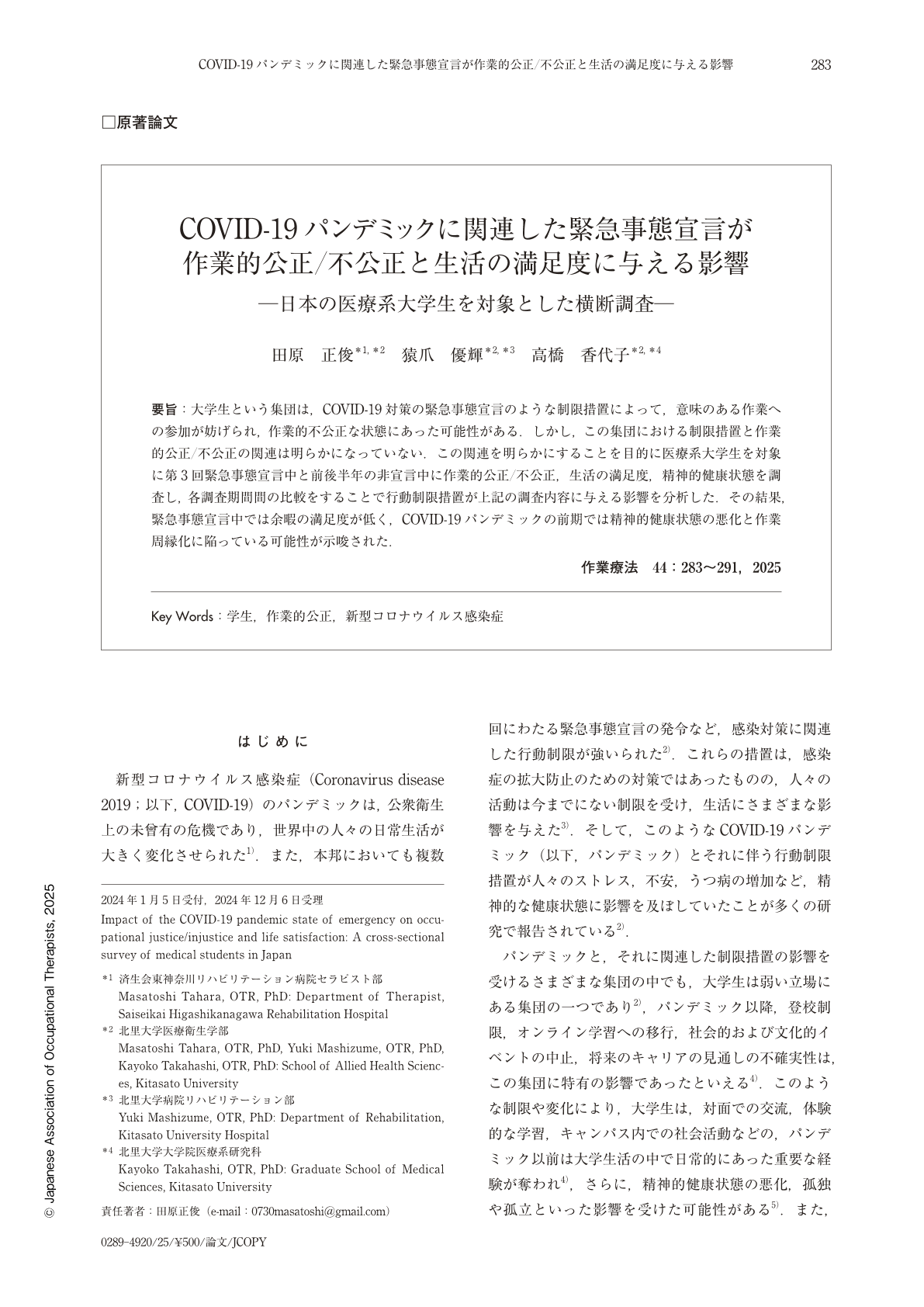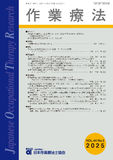Japanese
English
- 販売していません
- Abstract 文献概要
- 1ページ目 Look Inside
- 参考文献 Reference
要旨:大学生という集団は,COVID-19対策の緊急事態宣言のような制限措置によって,意味のある作業への参加が妨げられ,作業的不公正な状態にあった可能性がある.しかし,この集団における制限措置と作業的公正/不公正の関連は明らかになっていない.この関連を明らかにすることを目的に医療系大学生を対象に第3回緊急事態宣言中と前後半年の非宣言中に作業的公正/不公正,生活の満足度,精神的健康状態を調査し,各調査期間間の比較をすることで行動制限措置が上記の調査内容に与える影響を分析した.その結果,緊急事態宣言中では余暇の満足度が低く,COVID-19パンデミックの前期では精神的健康状態の悪化と作業周縁化に陥っている可能性が示唆された.
University students, as a group, may have experienced occupational injustice due to restrictions on meaningful occupation imposed by measures such as the state of emergency declarations for COVID-19. However, the relationship between such behavioral restrictions and occupational justice within this group remains unclear. To elucidate this relationship, we conducted a cross-sectional online survey of medical university students. This survey examined occupational justice using the Occupational Justice Questionnaire (OJQ) and life satisfaction like selfcare, leisure, study, and mental health status using General Health Questionnaire-12 (GHQ-12) during the third declaration of the state of emergency and six months befo re and after the nonemer gency period. The study was car ried out 1 w eek from November 4, 2020 and 1 week from November 5, 2021 during the non-emergency period, and 1 week from April 28, 2021 during the third declaration of the state of emergency in Japan. By comparing the survey periods, we analyzed the impact of behavioral restrictions on these aspects. The results indicate that leisure satisfaction was low during the state of emergency, and that du ring the e arly stages of the p andemic, people's mental he alth deteriorated and may have fallen into a state of occupational marginalization.

Copyright © 2025, Japanese Association of Occupational Therapists. All rights reserved.


